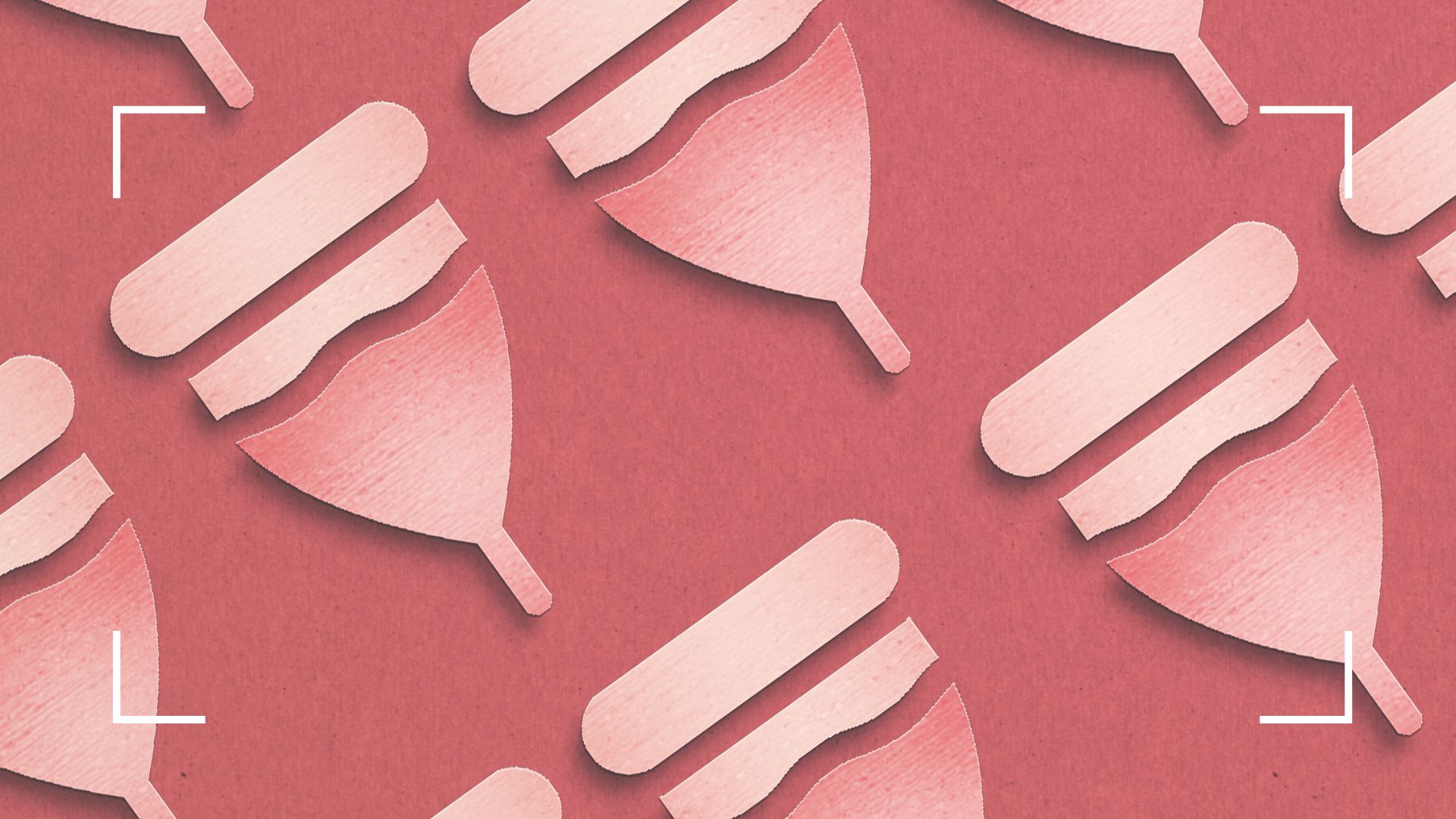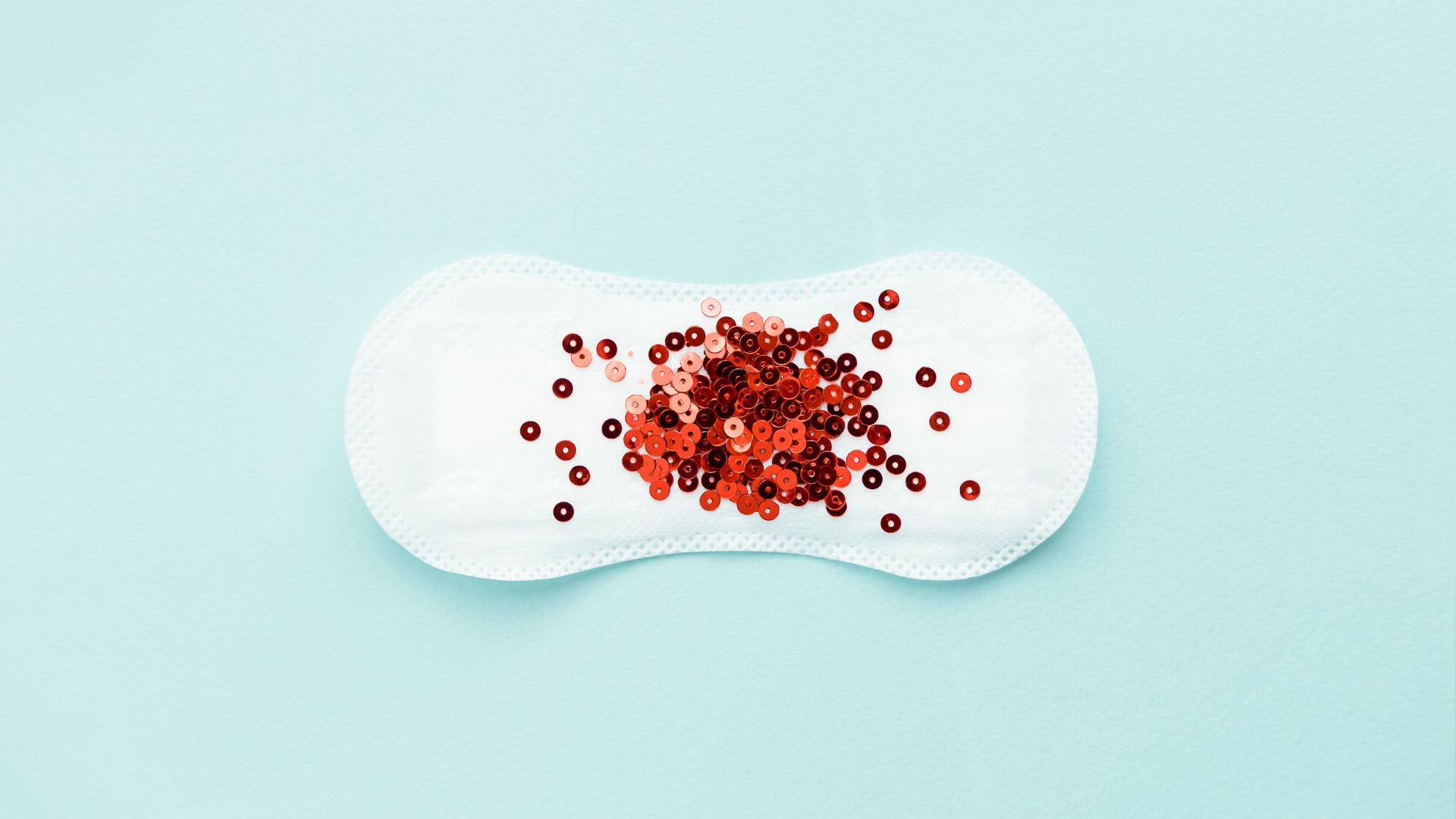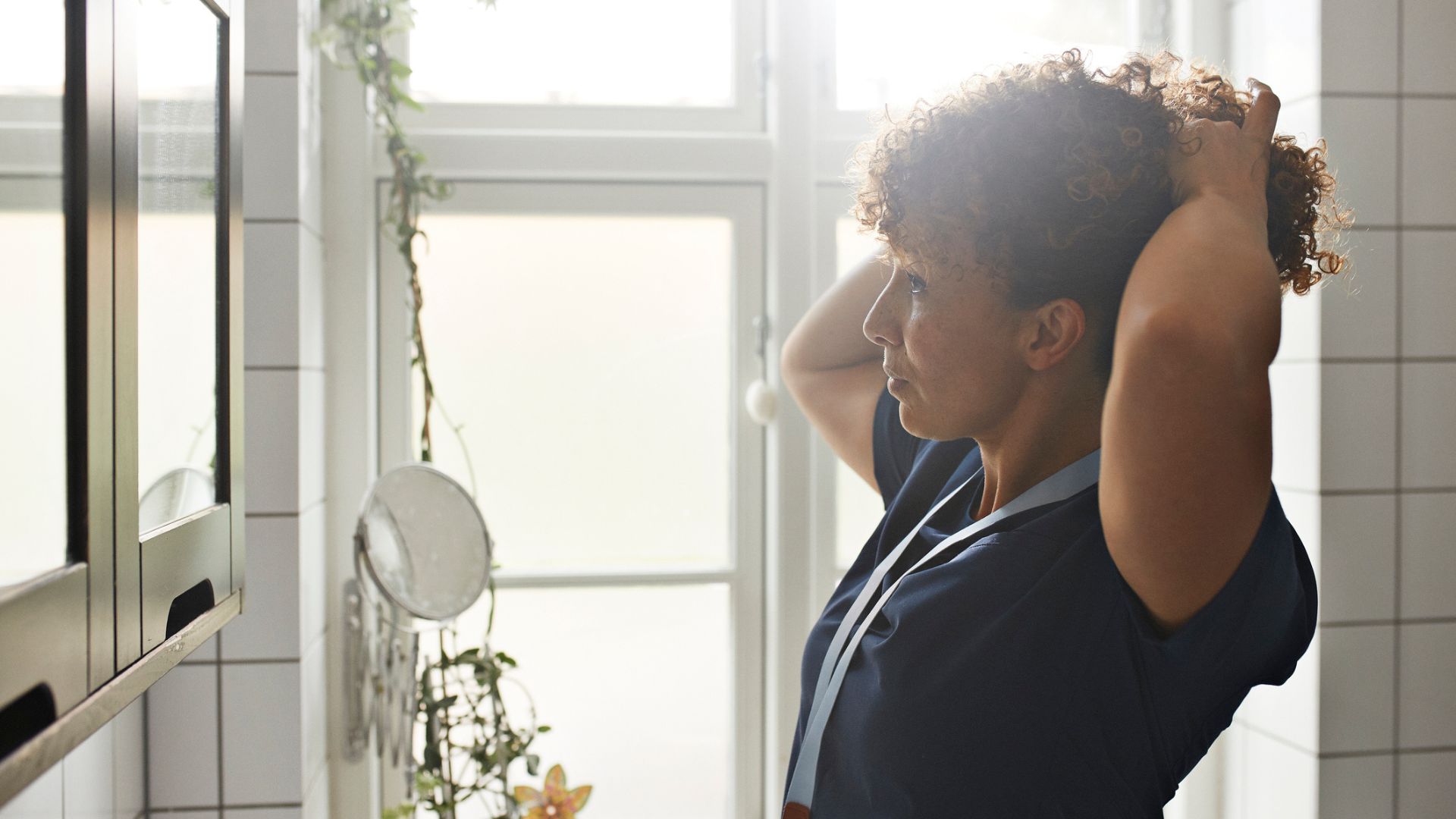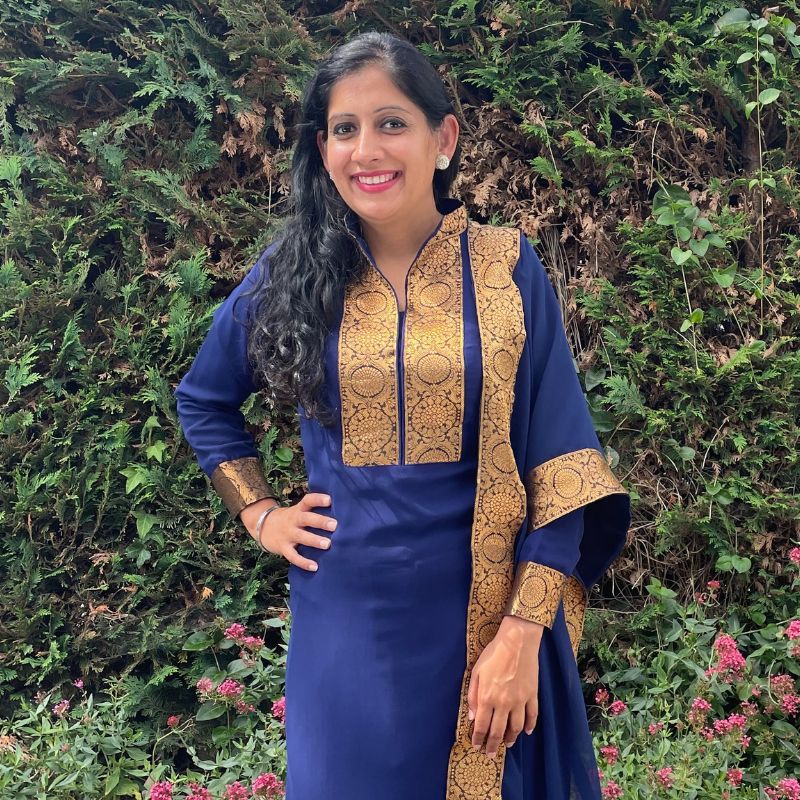Heavy periods after 40 with clots are normal, so why don't we talk about it? 4 women describe their experience - from flooding to irregular periods and pain
Heavy periods after 40 with clots are common. Here, two doctors explain why it happens and how to get treatment


Heavy periods after 40 (also called menorrhagia) may be common and perfectly normal for many people but, until menopause begins, they can also be hugely disruptive and cause discomfort, embarrassment, and stress to those experiencing them. While the world has become a lot more open to talking about menstruation, this is one part of the cycle that’s often left unspoken about.
In my South Asian culture, periods are taboo full stop. It’s a subject for women's ears only, never to be discussed outside the home and never to be discussed in front of men, so I grew up never talking about the subject. Only my mother knows how much pain I’ve been in over the years. When I hit my 40s, my periods got worse and now, I have a heavy one every month that makes me feel sick and keeps me in bed with a hot water bottle. It’s not something that’s spoken about in mainstream media before and this won't come as a surprise to many. South Asian women often feel ashamed talking about it to anyone but their friends.
If you’re suffering from painful and heavy periods, whether you're experiencing perimenopause symptoms or not, you’re not alone. Here, I speak to several women who noticed changes in their periods after 40, and with insights from Dr Danielle Russell, a leading GP specializing in women’s health, we explain why heavy periods after 40 with clots are normal, the causes, and when to seek help.
Are heavy periods after 40 with clots normal?
Unfortunately, yes, heavy periods after 40 with clots are normal and it’s common for women to experience this, explains Dr Russell, as heavy periods are caused by a drop in progesterone levels.
It’s something that women over 40 tend to experience regularly as this is the age when many begin experiencing early menopause symptoms when the body stops releasing eggs. For example, one study by the University of Michigan School of Public Health looked at women aged between 42 and 52 and found that almost 80% would consider the blood flow during their period to be heavy, with more than 90% having periods that lasted longer than they did before.
The drop in progesterone leaves relatively more estrogen to thicken up the lining of the womb so that there is more to shed during a period,” Dr Russell says. “Cycles can also become irregular during this time, so a skipped or delayed period leaves more time for the lining of the womb to thicken up.”
This lining also becomes much more vascular, she continues, making clots more likely. "During heavy flow days, usually during the first few days of the period, there is more blood present that coagulates in the uterus and vagina, and this comes out as clots."
Sign up to our free daily email for the latest royal and entertainment news, interesting opinion, expert advice on styling and beauty trends, and no-nonsense guides to the health and wellness questions you want answered.

What it's like to have heavy periods after 40 with clots
Just because it’s normal in many cases, it doesn’t mean it’s not difficult. No one should have to deal with the symptoms unmanaged. When I went to see my GP about heavy periods after 40, they told me it was a common experience among women of my age, nothing to worry about. They told me to to keep an eye on the length of the period and note whether it lasts longer than seven days or the clotting becomes more frequent - and I'm not the only one.
Laura Hitchcock, 48, is the editor of Dorset’s Blackmore Vale and had long but normal periods until the birth of her third child, at which point everything changed. “I suffered menorrhagia and it never really stopped. There was awful bleeding but thankfully no pain, ever, with clots for years. My fourth child four years later didn’t ease things up much,” she tells woman&home.
“I’m still waiting for the alleged light periods of aging and perimenopause. I don’t have to take tranexamic and mefenamic acid now, but I always double-up super-plus Tampax, plus nighttime pads, change them every couple of hours, and I have three days of hideous bleeding. It’s graphic, horror-film level, every single month. Then after this, there are another four days of what I think most women my age would call a heavy period.”
"It’s graphic, horror-film level, every single month."
It’s a situation that Irem, who is 51 and lives in Newcastle Upon Tyne, can relate to as she’s always suffered with medium to heavy periods. But in the last five years, it’s become much heavier. “So much so that I use three packets of bedtime [pads] in my seven to 10-day period. From day one, I'm exhausted. It's an effort to get up, get ready, and do life. The constant checking you’re not leaking, especially when you work in an office full of men and no women. You don’t have that support of pointing behind and whispering ‘am I ok?!’,” she says.
It’s not just something that happens in the lead-up to perimenopause and menopause though. Some people experience heavy periods throughout their life, like Sarupa Shah, 49, from London. “I have always suffered from heavy periods and clots, with my first one every lasting for three months, aged 13. I’ve always had severe cramps, clotting, and heavy and tender boobs with it too,” she says.
"It's an effort to get up, get ready, and do life."
“I’ve worn a tampon and pads for years and still have accidents. Recently, I had to do a long trip in the car so I just sat on a towel, just in case. I also prefer to wear leggings and trousers when I have my period as it feels safer like it’s holding everything in place.”
Shah, like myself and most others who experience these heavy periods, wants more open conversation about periods. “I don’t think we talk about period health enough or understand that it isn’t a light flow for most women and we carry so much shame about it like as women there’s something wrong with us.”
Is there treatment for heavy periods?
1. Tranexamic acid and non-steroidal anti-inflammatory tablets
Non-invasive treatment options are widely available and it’s these that seem to have the most effect. “Tablets such as tranexamic acid or non-steroidal anti-inflammatory tablets are beneficial,” Dr Russell says. “If these options have been tried unsuccessfully, then there are more drastic treatment options such as surgery.”
Tranexamic acid is a commonly-used medicine to help control bleeding of various types, including dental and nose bleeds, as well as menstrual bleeding. It normally comes in tablet form, the NHS explains, but it's also available in liquid, mouthwash, and injection forms.
Lesley Bourne, 50, from Buckinghamshire, originally had a Mirena coil (another treatment option, as explained below) fitted for her heavy periods but it stopped working, leading to a heavy bleed and a trip to the emergency room. Here, she wasn't seen by the gynecologist. Instead, she was given tranexamic acid and sent home.
“Two days later I started clotting and went to A&E again, only to be told I’m menopausal and it’s common. Then I went to my GP to have the coil taken out but that wasn’t possible," she says. Lesley was given a gynaecologist appointment for the following month but it took three referrals to get there.
"I’m taking norethisterone to stop the bleeding, but I still lose a clot of blood here and there and get crampy pains," she adds. Norethisterone is another drug used in the treatment of gynecological issues, confirms the National Institute for Healthcare and Excellence, but this is a progesterone hormone replacement.
2. Mirena coil
“Other options include the Mirena coil, also known as the hormone coil, which is placed in the uterus and acts to thin the lining of the womb so there is less to shed,” explains Dr Russell. “The Mirena coil has the added bonus that it can also be used as contraception and as part of HRT if needed.”
Unfortunately, the coil doesn’t work for everyone. It was the treatment that Bourne found beneficial when she had it fitted four years ago for heavy periods and it worked to start with, as her periods stopped completely. But when the coil stopped working, she lost a lot of blood. “They were big huge clots and only stopped after two hours, then two days later it started again. Only it was worse and it wouldn’t stop,” she tells woman&home.
3. Hormonal replacement therapy (HRT)
Hormone replacement therapy (HRT) can also be used to balance hormones, which can then help with the control of periods and other symptoms of perimenopause, Dr Russell says. It's traditionally a treatment for those experiencing menopause, but has its uses here as well for those experiencing heavy periods as it also boosts low hormone levels.
A review by the University of Edinburgh confirms this, following an examination of multiple studies using the method. They found that HRT was effective at reducing menopausal symptoms with 'add-back' hormones.
Ultimately though, if you’re struggling with heavy periods after 40, it’s best to discuss the options with your doctor to see which might be best for you.

When to see a doctor
Millions of people around the world experience heavy periods after 40, which means you shouldn’t have to put up with pain or discomfort if you’re struggling with them. “There is usually an underlying pathology for heavy periods,” explains Dr Hina Pathak Sra, a consultant gynecologist.
You should see a doctor about heavy periods after 40 with clots if:
- There is a new change in period blood flow (especially if it’s heavy)
- Bleeding in between periods
- Bleeding after intercourse
- Irregular periods
- Not having periods at all
- Bleeding after menopause
- Painful periods requiring a lot of bedrest or a lot of pain relief
- Pain during sex
- Pelvic pain
- Constant bloating
- Unintentional weight loss
“Any woman above the age of 40 years old with a change in their bleeding pattern or anyone who starts having heavy periods should see a GP to be referred to a gynecologist to organize an ultrasound scan to check endometrial thickness [thickness of the lining of the womb] and have an endometrial biopsy [biopsy of the lining of the womb]. This is to rule out any adverse changes on the endometrial cells,” Dr Pathak, who works with Harley Street's Cosmebeauté clinic, says.
Minreet Kaur is an award-winning journalist, having won report of the year for Skipping Sikh MBE. She has a lot of experience writing on health and wellness as well as culture, feminism, and religion, as featured in the Guardian, Telegraph, Metro, iNews, BBC, Sky, as well as on various radio and television channels.
Bringing together her passion for swimming and running with her desire to encourage others in the South Asian community to get more active through exercise, Minreet became a swimming teacher after the lockdown in 2020 and has since set up a swimming club.
